Terrified and Giving Birth Alone: Emergency Birth Kits Save Moms in Humanitarian Crises
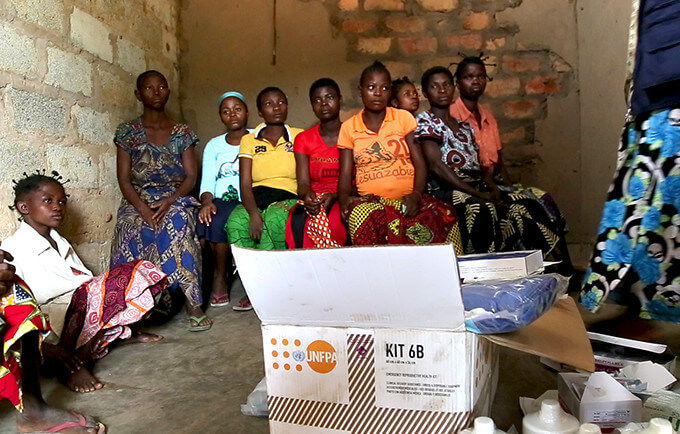
Expecting a child and becoming a parent can be one of the most transformative, exciting, and difficult experiences in one’s life.
In an ideal world, every mother would have the food and medication she needs for a healthy pregnancy. She would have access to prenatal care and would be able to attend baby preparation classes with her partner. And, when the baby was ready, she would have a skilled birth attendant by her side in a health center.
The reality is that women become pregnant and give birth all of the time, including during political violence, natural disasters, and disease outbreaks. UNFPA ensures that these mothers have a safe delivery by providing them with emergency birth kits.
“The reality is that women become pregnant and give birth all of the time, including during political violence, natural disasters, and disease outbreaks.”
The kits contain a bar of soap, a plastic sheet, a razor blade, an umbilical cord tie, cloth and latex gloves. These items provide mothers with a sanitary place to give birth and the tools to care for themselves and their babies after delivery.
Here are 5 mothers who have safely given birth with emergency birth kits in the midst of a crisis:
Ginalyn
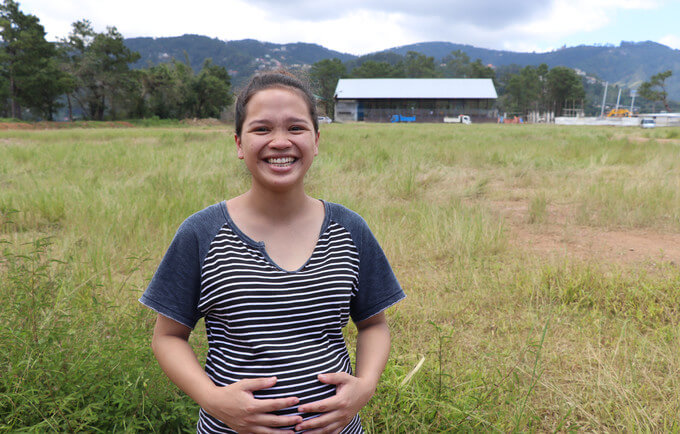
© UNFPA Philippines/Mario Villamor
Ginalyn was 9 months pregnant when torrential rains, biting wind, and landslides forced her and her family to leave their home in the Philippines. She raced up the side of the mountain during Typhoon Oompong to reach an evacuation center. “My feet were so painful and my belly was hard,” she said.
At the evacuation center, UNFPA gave Ginalyn an emergency birth kit so that wherever she was evacuated to, she could delivery her baby safely. Over 50,000 pregnant women like Ginalyn were affected by the typhoon. Another 35,000 women had given birth less than six months before the storm struck.
Lena
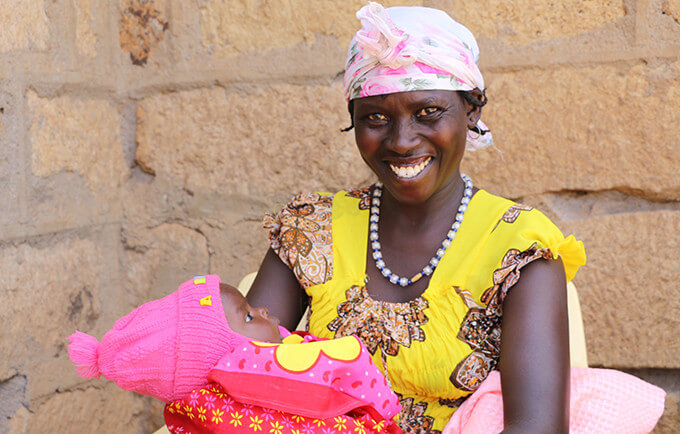
© UNFPA Kenya/Douglas Waudo
The day Lena gave birth to her 7th child began normally. Her husband had taken the cattle out to graze in Kenya’s grasslands and her children made their regular bedtime. That night, her husband had not yet returned when people from a neighboring village fired shots and burned down homes in Lena’s community. The assailants hoped to get livestock and food to sustain them through a drought that was affecting the region.
Lena fled into the bush, losing contact with her 6 children in the dark and the underbrush. That night, Lena went into labor and gave birth to her son. Luckily, she had a emergency birth kit that had been distributed to her earlier in her pregnancy. “That, I believe, is what saved my life.”
Phu Tu Nee
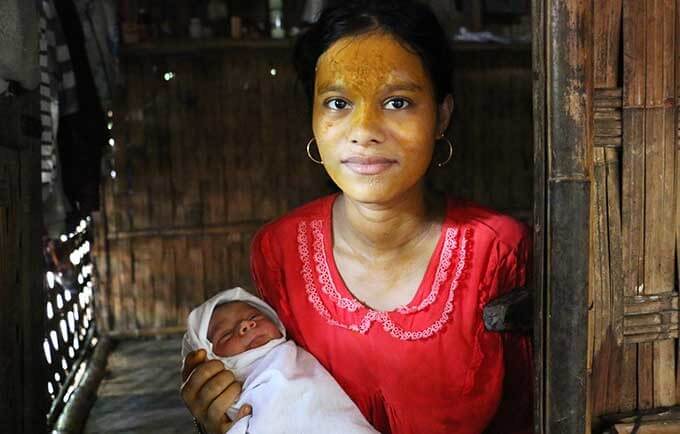
© UNFPA Myanmar/Yenny Gamming
Phu Tu Nee is one of over 300,000 “forgotten” Rohingya who are living in camps and villages in Myanmar under severe restrictions. The limitations on movement have made it hard for women to access the check-ups, food, and medicine they need for a healthy pregnancy.
A UNFPA mobile clinic passed by Phu Tu Nee’s village once a week, as long as was able to travel through storms, but Phu Tu Nee went into labor during a monsoon, making it impossible for her to reach a health facility. The clinic had given her a emergency birth kit, which she used when her baby came. Phu Tu Nee safely delivered her first child, a boy.
Jacqueline
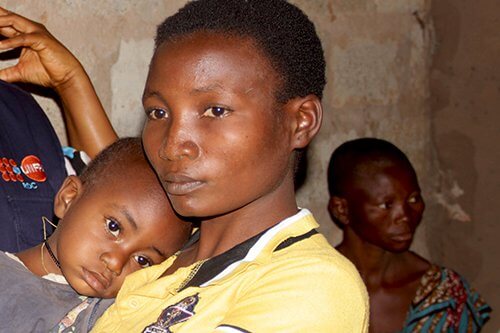
©UNFPA DRC
Jacqueline was in her last trimester of pregnancy, taking care of her 1-year old son, and hadn’t heard from her husband in 7 months. Her family was part of the 1.4 million people who had been displaced due to violence in the Democratic Republic of Congo. Kidnappings, murders, rapes, burnt villages, and Ebola outbreaks added to the chaos there. Health systems broke down, making it nearly impossible for pregnant women like Jacqueline to receive prenatal care.
When she was finally able to reach a UNFPA clinic, she received a emergency birth kit so she could safely give birth when her baby came.
Reproductive healthcare is even more important in situations with high levels of gender-based violence. Women have greater chance of becoming pregnant from rape or being infected with HIV. Fast access to care mitigates these risks.
Alimanda
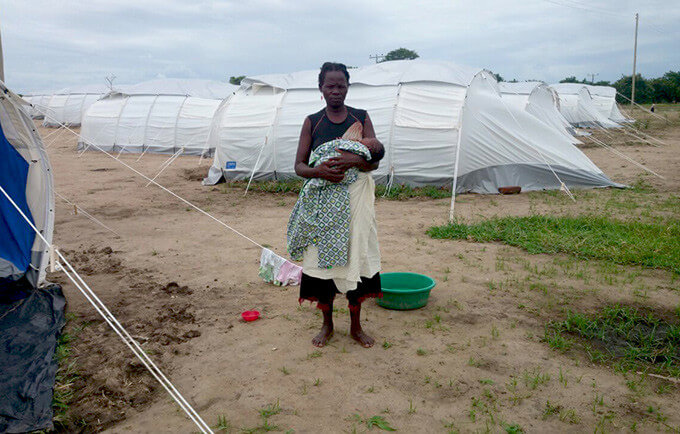
© UNFPA/Jayne Chisenga
When Alimanda saw flood waters streaming into her home in the night, she woke her children and rushed them outside and up a tree for safety. 8-month pregnant Alimanda managed to make it up the tree as well. The family was rescued the next day, but their entire community in Malawi was homeless and forced to live in a temporary settlement
Alimanda felt contractions after a few weeks of living in the camp. On her way to a health clinic she had to lie down on a plastic sheet from a emergency birth kit and deliver her daughter. Both mother and baby are safe, but 5,000 other pregnant women were also displaced in the storm.
Each of these women safely gave birth despite violence, disaster, and uncertainty. Many were left homeless or were separated from their family and support systems shortly before they went into labor. Luckily, each woman had an emergency birth kit to give her a sanitary space to deliver her baby and the tools she needed afterwards to take care of herself. However, every day more than 500 women die in humanitarian settings from preventable maternal deaths. These women never had access to an emergency birth kit or delivery care from a health professional.
UNFPA is working to reach zero maternal deaths by 2030. They provide women with access to midwives and health facilities when possible and with emergency birth kits when necessary. No woman should die as she gives life.